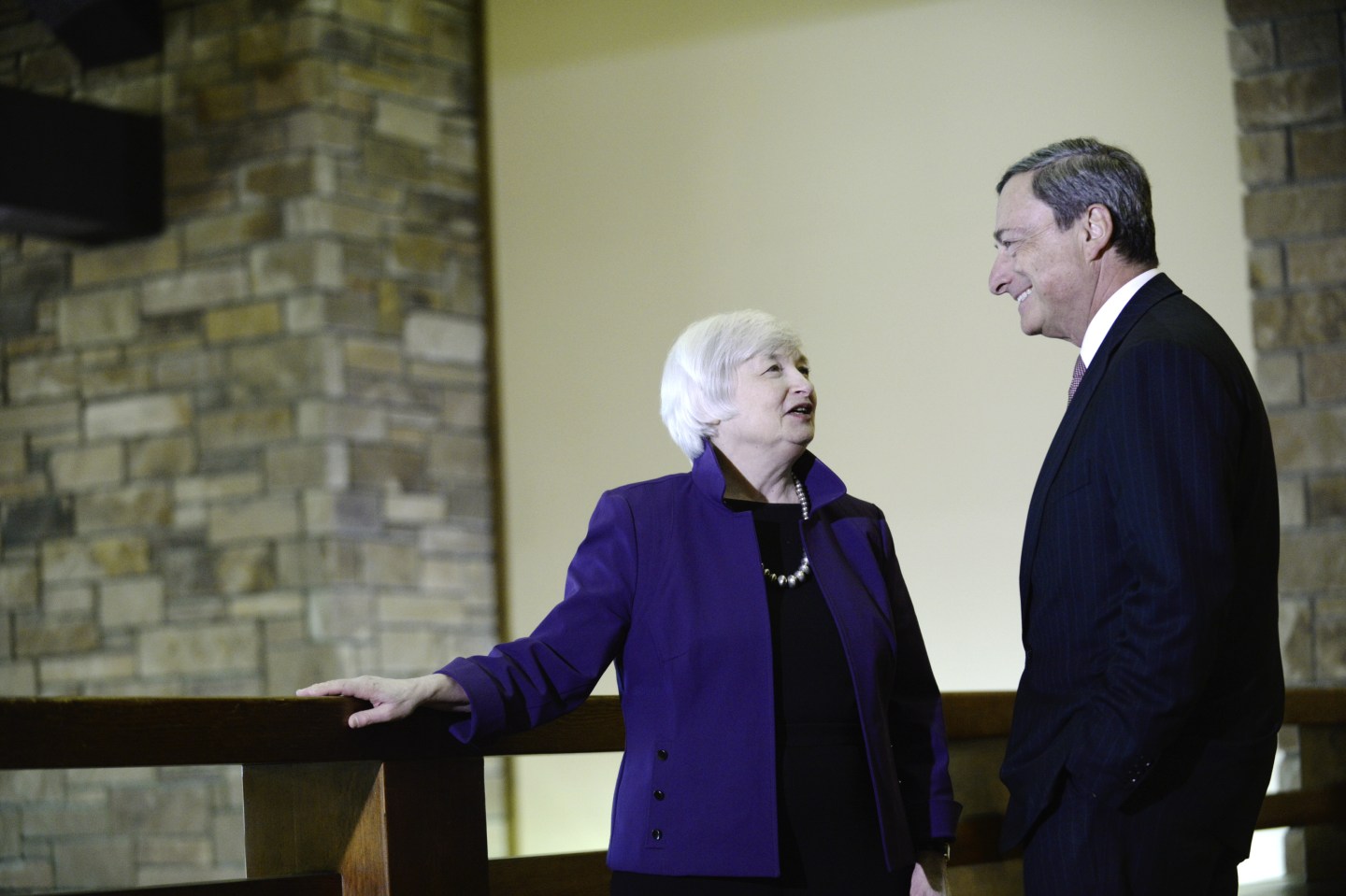It’s time to book that holiday to Paris/Rome/Barcelona before Congress starts calling the Europeans currency manipulators.
The euro is falling like a stone against the dollar Friday on the back of figures showing much faster-than-expected job growth in the U.S.in February.
A 295,000 rise in non-farm employment–way ahead of the 240,000 forecast–has reinforced expectations of that the Federal Reserve may raise interest rates as early as June.
But while the Fed is preparing to tighten the supply of dollars, the European Central Bank is preparing to open the euro floodgates, having committed again Thursday to pumping €60 billion a month of new money into the economy for at least the next 18 months. The fact that the world’s two most important central banks are heading in completely different directions is making for an extraordinarily sharp move.
The euro fell by more than a cent on the Bureau of Labor Statistics data to $1.0876, its lowest level in 11 and a half years. It had already fallen by over a cent since ECB President Mario Draghi held his regular press conference Thursday.







